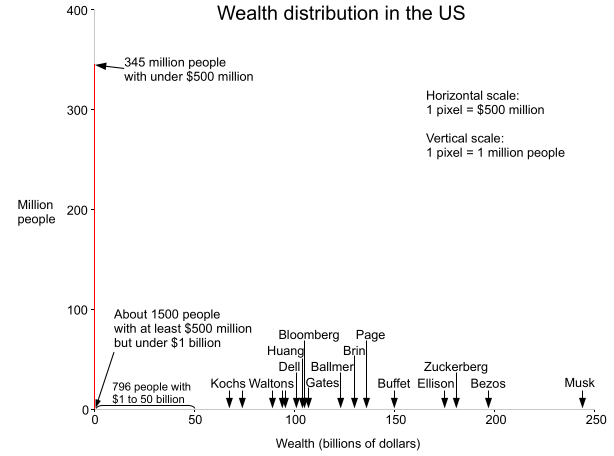Why your vote for Clark, Song, and Mizrahi matters more than you think.
Every few years, Seattle elects new school board members and most people barely notice. But this time, the stakes are enormous.
This vote will decide whether Seattle Public Schools starts unwinding a half decade of exceedingly bad policy on finances, safety, and academic rigor, or cements the downward path. The people we choose on November 4th will inherit a malleable district bureaucracy that’s in crisis and will make choices that have decades long impacts.
TL;DR
Vote Sarah Clark (D2), Vivian Song (D5), and Joe Mizrahi (D4) to flip the Seattle School Board majority into one that actually fixes things instead of getting lost in endless “governance” talk.
In District 7, I’m voting Jen LaVallee, though Carol Rava is also a strong choice.
And most importantly: make sure people know to vote for Clark — that race is close, and it shouldn’t be.
Why “20-year impact” Isn’t Hyperbole
Closures alone have ripple effects that last generations. Beth Day’s “school desert” maps show how each closure leaves gaps in citywide coverage that have persisted for 50 years.
And no, enrollment hasn’t “declined.” Seattle is near a multi-decade peak. Closing schools doesn’t save much either — most costs are teachers, who follow students, not buildings.
Meanwhile, the district has quietly gutted middle-school language programs and increased high-school class sizes hurting college applications. Instead it shifted staff into “Instructional Professional Development” jobs like curriculum coaches. That’s a budgeting failure — made worse by board rules that discourage meaningful discussion.
(Note, while I do use the Stranger’s Election Control Board guide, their school-board endorsements for years have backed the presidents who built this mess. DO NOT BLINDLY FOLLOW THE STRANGER’S SCHOOLBOARD ENDORSEMENTS.)
Then there’s policy. The removal of walk-to-math and the fight against acceleration has already made elementary school choices affect high-school pathways — and ultimately college options.
What. The. Actual. Fuck.
The intent was “equity.” The impact has been a new form of tracking — less transparent and worse for everyone. Whether or not we roll those changes back is what’s on the ballot.
Rebuilding school programs will take years of policy work followed by years of restaffing. If this election cements the current leadership/policy mess, we won’t get another shot for 4 years with even more policy to undo.
Between timelines for the next election, further enshitification of bad policy direction, and possibility of attempting nonsensical closures again due to misunderstanding of finances, 20 years of impact is conservative.
So yes, this vote matters.
Sarah Clark (District 2)
Sarah Clark is by far the most qualified candidate in this race — and it’s maddening that it’s even close. She’s the only one who:
- Opposed closures early and publicly
- Created an ad-hoc Finance Committee to confront real budget dysfunction
- Worked with Superintendent Jones to prevent HCC from being sunsetted
- Is an SPS alum
- Can actually discuss current policy details
- Uses community analysis to inform her work
- Pushed the district to reconsider enrollment and waitlist policies
- Supported student voices during the high school lunch shuffle
Yet she’s running neck-and-neck with a candidate whose main pitch is “I’m a data scientist.”
Data expertise is great — but where’s the evidence of using it? In six months of campaigning, there’s been no analysis, no insight, no public data work.
When I looked into district finances during the closure debate, I found major flaws in two months — while sick, with no infrastructure. A candidate centering “data” should be able to do the same.
Instead, we get vague lines like “SPS must amend its Closure Policy.”
The real answer should sound like:
“A decade of state fiscal data shows school closures save only a few hundred thousand dollars at best, with negligible year-over-year changes. The question isn’t how to tweak the closure policy — but how the closure discussion gained traction at all.”
That’s a data-informed policy position.
Vote Clark. Tell everyone to vote Clark.
And if you can, sign up to text-bank for her (it’s super easy).
This race should not be close. Let’s make sure it isn’t.
Vivian Song (District 5)
Vivian Song has earned my trust over years of real work. Even out of office, she’s done the unglamorous tasks that make the system better — like spending hours helping calculate the actual fiscal impact of closing a school.
She brings:
- Deep financial and board experience
- A practical grasp of people-resource problems
- A long record of integrity and persistence
If you’ve found any of the SPS financial analyses I’ve shared useful, you’ve indirectly benefited from her insight — she’s been a steady sounding board.
Vote Song.
Joe Mizrahi (District 4)
Joe Mizrahi understands both data and budgets. From our discussions I can confirm he’s taken the time to learn the details, knows how the system works, and hasn’t been afraid to challenge the current board majority.
He also brings something the board desperately needs: union-leadership experience.
Not because “unions are intrinsically wonderful,” but because a board that negotiates with SEA should include someone who actually understands organized labor.
Boards are teams. They need complementary skill sets.
Mizrahi fills a gap the board has lacked for years.
Vote Mizrahi.
Jen LaVallee and Carol Rava (District 7)
I’m voting LaVallee.
I worked with her during the school-closure pushback, and she earned my respect. She’s empathetic, data-driven, and deeply connected to the new wave of parent advocates pushing for reform.
That said, Rava is also a strong candidate. She brings broad district knowledge and executive-leadership experience — both critical as SPS (hopefully) restructures under a new superintendent.
Both are thoughtful. Both are tough. Both will get things done.
I lean LaVallee, but either vote is solid.
Final Thought
Seattle has spent a decade spinning in circles while students lose opportunities, families lose trust, and staff lose morale.
But crises also open doors. Bureaucracies rarely change — unless they’re forced to. Right now, SPS is in that rare, malleable moment.
This election is the turning point.
Treat your vote seriously. Read primary-source interviews and questionnaires, not just endorsement roll-ups.
Then help your neighbors understand why this election matters for the next 20 years.



